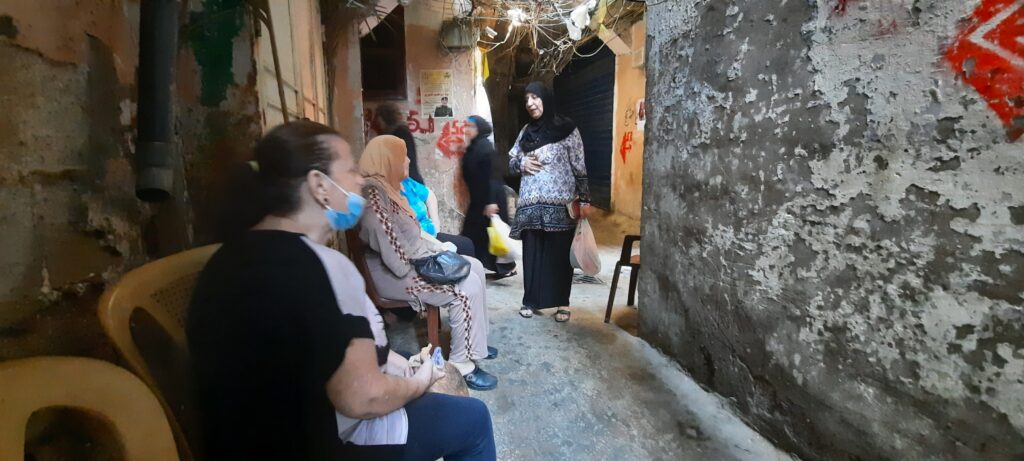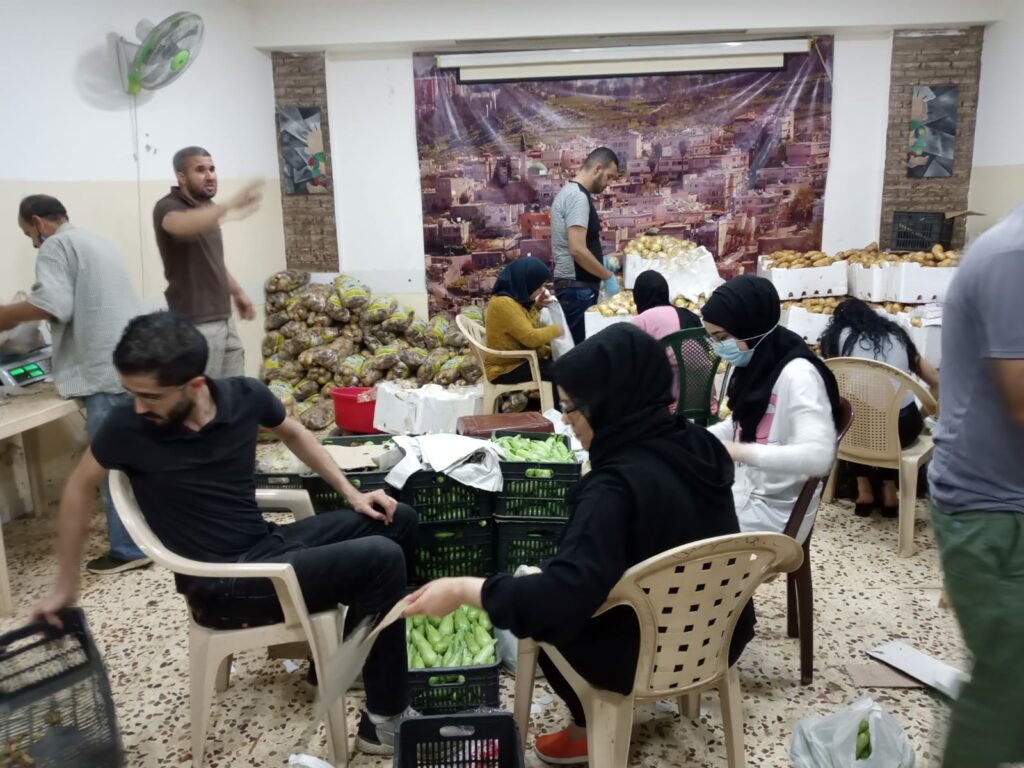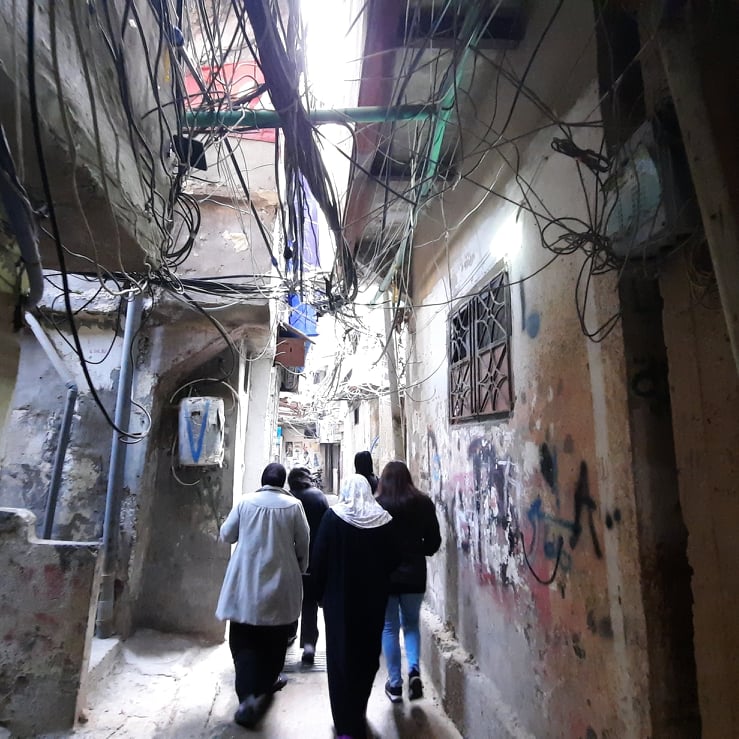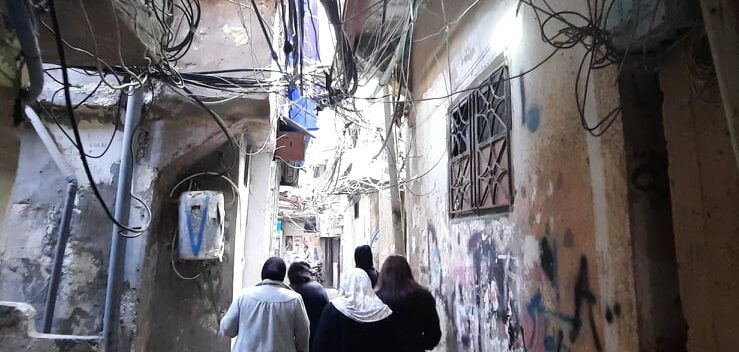In this audio interview, Future Natures sits down with Yafa El Masri to discuss commoning and the commons in refugee camps. This conversation delves into the research that Yafa has been doing for several years in Lebanon. It uses language of care, mutual aid and place-making to describe life in refugee camps.
Yafa grew up in the Bourj Albarajenah Palestinian refugee camp in Beirut. Her lived experiences, as well as time spent there as a researcher, has led to her view of the camp as a space of ‘exception’. Yafa draws on the power of a commoning framework to deviate from the mainstream view of refugees as ‘helpless victims’ or as ‘passive’ recipients of humanitarian services. Instead, Yafa explores the commons as emerging from voluntary processes of self-organisation.
The refugee camp provides a material basis that partly allows reproducing everyday life independently from monetised income. This includes the commoning of care beyond the private/public sphere, decolonising education, food provisioning and infrastructure.
Women in these refugee camps have very strong bonds of sisterhoods. They are assisting each other in subverting whatever oppression they are going through. The commoning of the food is… the method in preserving people’s dignity”
Yafa El Masri
Yafa leads us through her anti-colonial feminist approach, which is particularly useful for analysing the work of the ‘sisterhoods’ cultivating solidarity food economies in Bourj Albarajenah. You can read more about this in her most recent paper here.
Below are some images which help us situate ourselves in the Bourj Albarajenah camp in Beirut as we listen to Yafa talk about her work.

August, 2021. Image Author: Yafa El Masri.

August 2021. Image Author: Yafa El Masri

August 2021. Image Author: Yafa El Masri
